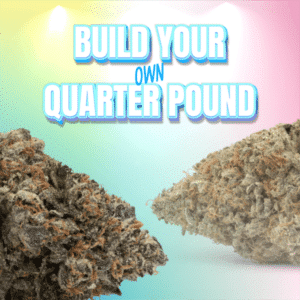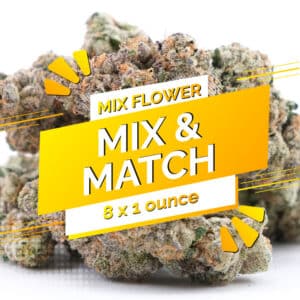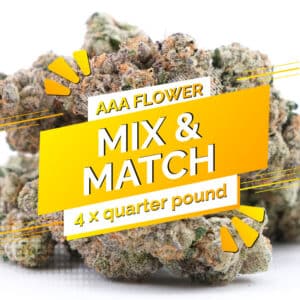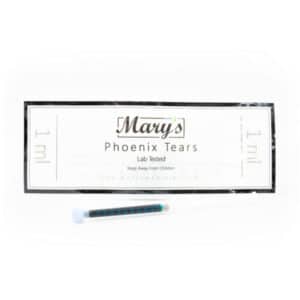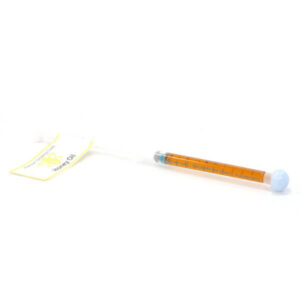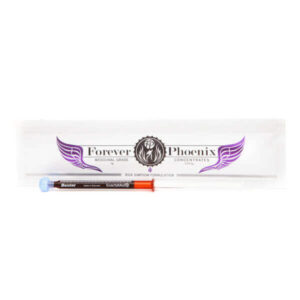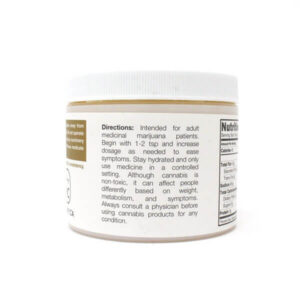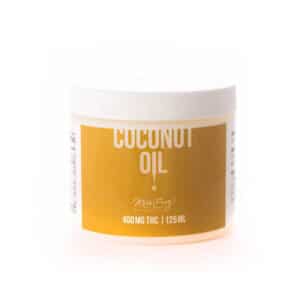Product
Categories
FILTER BY PRICE
-
Sale!0 out of 5
QP of Weed
0 out of 5$600.00Original price was: $600.00.$500.00Current price is: $500.00. Select options -
Sale!0 out of 5
Half Pound of Weed
0 out of 5$900.00Original price was: $900.00.$800.00Current price is: $800.00. Select options -
Sale!0 out of 5
Pound of Weed
0 out of 5$1,500.00Original price was: $1,500.00.$1,300.00Current price is: $1,300.00. Select options
THC Oil
Tetrahydrocannabinol (THC) is the primary psychoactive compound found in the cannabis plant that produces the “high” feeling associated with marijuana. THC interacts with the body’s endocannabinoid system to provide a wide range of potential therapeutic and recreational effects.
Showing all 6 results
-
0 out of 5
1000mg THC Plus Syringe (Herb Angels)
0 out of 5$60.00 -
0 out of 5
440mg Phoenix Tears (Mary’s Edibles)
0 out of 5$30.00 -
Sale!0 out of 5
Cherry Rick Simpson Oil
0 out of 5$25.00Original price was: $25.00.$19.00Current price is: $19.00. -
0 out of 5
Premium Honey Oil (Mary’s)
0 out of 5$30.00 -
0 out of 5
Rick Simpson Oil (Forever Phoenix)
0 out of 5$30.00 -
0 out of 5
THC Infused Coconut Oil 400mg THC (Miss Envy)
0 out of 5$30.00
THC Oils: The Complete Guide
THC oils are concentrated cannabis extracts that contain high levels of THC. They come in various formulations that allow for precise dosing, customized combinations, and flexible consumption methods. For both recreational and medical users, THC oils offer many advantages over other traditional cannabis products.
This comprehensive guide will explore everything you need to know about THC oils including:
What are THC Oils and How are They Made?
THC oils, commonly known as cannabis oils, are concentrated extracts from cannabis plants that contain high concentrations of THC. They are produced through various extraction methods:
- Solvent Extractions: Using solvents like butane, ethanol, or CO2 to extract cannabinoids and terpenes from plant material. Solvent extractions produce products like shatter, budder, wax, and hash oil.
- Infusions: Infusing dried cannabis flower or trim into food-grade oils like coconut, olive, or MCT oil. This creates a versatile product commonly known as canna oil.
- Distillates: Further refining oils using short-path distillation to produce high-purity THC distillate oils.
Quality THC oils only use cannabis grown without pesticides or contaminants and the latest lab equipment for safe, precision extraction and purification. Reputable producers also submit extracts for third-party testing to verify potency and purity.
The Many Benefits and Effects of THC Oils
When consumed, THC activates the CB1 and CB2 receptors of the endocannabinoid system. This produces both psychoactive effects and a wide range of potential therapeutic health benefits:
- Relieves pain and inflammation
- Reduces nausea and stimulates appetite
- Promotes sleep and relaxation
- Elevates mood and relieves anxiety
- Slows certain cancer growths
- Reduces muscle spasms from conditions like multiple sclerosis
- Protects brain health
The specific effects experienced depend on the THC potency, your individual body chemistry, and serving size consumed. Many find low doses provide relief while higher doses produce strong psychoactive effects.
Popular Types of THC Oils and Products
There are many different types of cannabis oils, extracts, and THC vape cartridges available. Here are the most common products you’ll see on dispensary shelves:
THC Oil Tinctures
THC tinctures are liquid cannabis extracts designed for sublingual dosing, where you place drops under the tongue. Tinctures provide quick-acting effects and precise dosing control via the included dropper. Popular options include full-spectrum and broad-spectrum THC tinctures which contain a range of cannabinoids and terpenes alongside THC for maximum therapeutic benefit.
THC Distillate Oil
THC distillate, also known as Clear Nation or simply “the Clear”, is an ultrapure THC oil refined through an additional distillation step. It typically contains 90%+ purified THC without other cannabinoids or compounds. The purity makes distillate versatile for vaping as well as edibles, tinctures, and more. However, some argue the entourage effect is diminished without other cannabis compounds present.
Rick Simpson Oil (RSO)
Rick Simpson oil, usually called RSO, contains very high THC levels approaching 90% in some cases. It has thick, viscous consistency and intense potency thanks to minimal refinement. RSO was rediscovered as a traditional cannabis extract with many purported health benefits, but its strong psychoactive effects make careful dosing essential.
Live Resin Oil
Live resin oils, sometimes labeled as “sauce”, “budder”, or “batter”, are in high demand for their superior aroma and flavor. Live resins use flash-frozen cannabis plants processed immediately after harvest to best preserve delicate terpenes and cannabinoids for a more complete experience.
Disposable Vape Pens
Disposable THC oil vape pens provide convenience and ease of use. Each pen contains prefilled THC oil, so you can simply inhale and enjoy. While limited in flavor options, disposable pens require no charging or cartridge changes. They provide an easy introduction to vaping THC.
Prefilled THC Cartridges
Refillable vape cartridges loaded with THC oils, also called THC vape carts or tanks, offer options to customize your vaping experience. You can choose cartridge strains and oil types or swap out cartridges at your convenience. Most attach to reusable 510 threaded batteries for hundreds of uses.
Understand THC Oil Potency and Dosing
One key factor that affects the intensity and duration of THC oil effects is potency, measured by percentage of THC by weight. Typical potency ranges for THC oils include:
- Low potency: 2-15% THC
- Mid potency: 16-50% THC
- High potency: 51-90%+ THC
Higher potency oils will produce much stronger psychoactive effects with smaller serving sizes. This allows more precise dosing control, but also increases risks from overconsumption. Always review lab test results and start with the lowest dose possible, then gradually increase to find your ideal amount. Having a calibrated oral syringe makes dosing THC oils easier.
Other factors that influence effects include your genetics, tolerance, previous cannabis use, and delivery method. Oils, edibles, and vaping can produce longer-lasting effects than smoking or vaporizing flower.
Is it Safe to Consume THC Oils?
When used responsibly, THC oils are generally considered safe. However, these tips will help mitigate risks:
- Buy from licensed dispensaries – Purchasing lab-tested products from licensed retailers ensures you receive pure, contaminant-free oils.
- Review COAs – Always review lab test results from the product’s certificate of analysis (COA) to verify potency and purity.
- Start low, go slow – Exercise caution with dosing until you understand how a particular THC oil affects you. Wait at least 2 hours before increasing your dose.
- Avoid overconsumption – Consuming excessive amounts of THC can be unpleasant. Dose carefully to avoid negative experiences. Having CBD oil on hand can help counteract unwanted effects from too much THC.
- Avoid solvent-based extractions (if concerned) – Some avoid butane or solvent-extracted oils due to residual solvent concerns, opting for solventless oils instead.
- Do not drive or operate machinery – THC can cause impairment, so avoid driving or hazardous activities after consuming.
- Consider medical guidance (if applicable) – Those using THC oils for medical purposes may benefit from professional medical oversight for optimal safety and dosing.
Exercising caution with dosing and purchasing tested oils from reputable dispensaries will maximize the safety of your THC oil experiences.
Step-By-Step Guide to Using THC Oils
Using THC oils properly requires some basic knowledge. Here is a simple step-by-step guide:
1. Choose Your Product
Select an oil variety that suits your desired experience. Consider factors like potency, purity, cannabis strain effects, and more.
2. Check Lab Results
Review the product’s certificate of analysis to verify potency, cannabinoid content, and purity before using. Ensure testing was performed recently by a reputable lab.
3. Start with a Very Low Dose
Initially consume a very small amount of THC oil, around 2.5-5mg of THC or less. This allows you to understand effects before increasing your dosage.
4. Dose Under the Tongue
When using a THC oil tincture, place your dose under the tongue and hold for 60-90 seconds before swallowing. This sublingual dosing maximizes absorption.
5. Wait at Least 2 Hours
Be patient – it can take 1-3 hours to fully experience the effects of THC oils. Wait at minimum 2 hours before increasing your dosage or consuming more.
6. Increase Dosage Slowly
Gradually increase your dosage over multiple sessions until you find your perfect amount. Take it slow to avoid negative effects from overconsumption.
7. Track and Adjust Accordingly
Keep a log of the THC oil type, dose taken, and effects experienced each time. Adjust your routine based on the results.
Following these steps will ensure you safely maximize the benefits and enjoyment from whichever THC oil product you choose.
Where to Buy Quality THC Oils
Finding pure, high-quality THC oils you can trust requires a reputable source. While availability depends on your region, here are some top purchase options:
- Licensed dispensaries – All legal states have dispensaries that offer lab-tested THC oils. View the dispensary’s license, COAs, and reviews.
- Government-run cannabis stores (Canada) – Legal stores managed by provincial governments, like the Ontario Cannabis Store, offer regulated THC oils.
- Verified online dispensaries – Purchasing THC oils online from legit dispensaries can provide convenience and access. Carefully validate the retailer’s credentials first.
- Medical marijuana pharmacies – Some pharmacies or health centers dispense THC oils in states with medical access. A doctor’s guidance may help with selecting products and dosing.
- Licensed recreational stores – Once recreational cannabis sales are legal in your state, licensed dispensaries can provide THC oils to the public.
Avoid unregulated sources like black market dealers, unverified online sellers, or unlicensed stores. Curating THC oils from licensed, lab-tested sources is the only way to guarantee safety and authenticity.
Frequently Asked Questions about THC Oils
1. How long do the effects of THC oil last?
The effects of THC oil typically last 4-12 hours depending on the dose, potency, your tolerance, and other individual factors. Oils provide much longer lasting effects compared to smoking or vaping cannabis flower.
2. What’s the best way to take THC oil?
Common options include:
- Sublingual dosing of tinctures under the tongue
- Adding to foods, drinks, or recipes
- Vaporizing in a cartridge or vape pen
- Dabbing onto a heated surface and inhaling
The best method comes down to your desired onset time, duration of effects, and personal preferences.
3. Can you overdose on THC oil?
While exceptionally rare and unlikely to be fatal, it is possible to consume too much THC oil resulting in an unpleasant overdose experience. Symptoms may include panic attacks, rapid heart rate, nausea, and disorientation. Stay hydrated, rest, and wait for effects to gradually subside.
4. Does THC oil show up on a drug test?
Yes, THC and its metabolites can be detected on standard urine, blood, saliva, and hair drug tests for 1-3 months after your last use. Avoid THC oil if being tested.
5. Is THC oil legal?
THC oil legality depends on state laws. In most states where recreational or medical marijuana is permitted, regulated THC oils are available. However, THC remains a controlled illegal substance federally in the United States.
What’s the difference between CBD oil and THC oil?
- CBD oils contain cannabidiol, while THC oils contain tetrahydrocannabinol.
- CBD is non-impairing and provides therapeutic effects, while THC causes the “high” feeling.
- Hemp-derived CBD oil is legal federally, while cannabis-derived THC oil is not.
So in summary, CBD oil will not get you high and is legal nationwide, while THC oil will get you high and availability depends on your state laws.
Enjoy the Benefits of THC Oils Responsibly
When sourced from reputable vendors and consumed mindfully, THC oils can provide many personalized benefits along with an enjoyable high. Armed with the guidance above, you can now confidently explore the diverse THC oil options available and discover your perfect product, dosage, and consumption method. Just be sure to verify lab results, dose carefully, and avoid overconsumption or hazardous activities while intoxicated. With smart use, THC oils offer a wealth of potential wellness advantages and euphoric experiences.

